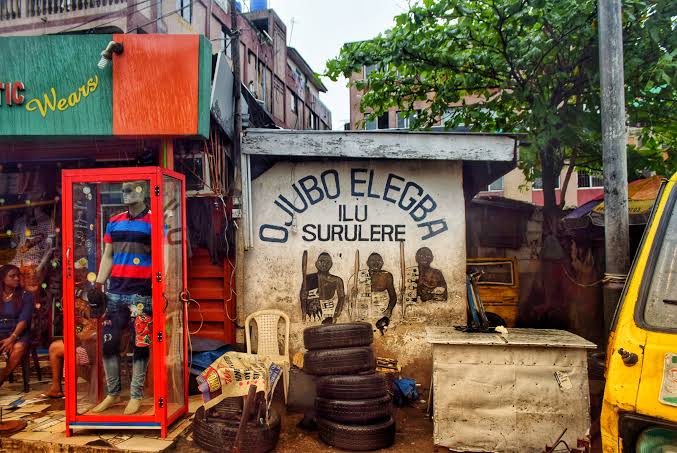
History of Bodija, the first housing estate in Nigeria
Thread! Retweet and Comment
The Ibadan Housing Estate was birthed in 1959 when the regional government decided to increase the number of modern houses available in the city.
| Davido nimc bolt fireboy big wizkid #wizkid |
Thread! Retweet and Comment
The Ibadan Housing Estate was birthed in 1959 when the regional government decided to increase the number of modern houses available in the city.
| Davido nimc bolt fireboy big wizkid #wizkid |

The first Housing estate in Nigeria was the Bodija Housing Estate, Ibadan.
The Ibadan Housing Estate was birthed in 1959 when the regional government decided to increase the number of modern houses available in the city. The Estate was built on a 400-acre of land in the area
The Ibadan Housing Estate was birthed in 1959 when the regional government decided to increase the number of modern houses available in the city. The Estate was built on a 400-acre of land in the area
known as Bodija. At the time, the location of what is now Bodija was the outskirt of the city of Ibadan.
All the houses in the Estate had all the basic amenities: light, water, garden, etc; however, the difference was in the number of rooms and the quality of materials used to
All the houses in the Estate had all the basic amenities: light, water, garden, etc; however, the difference was in the number of rooms and the quality of materials used to
build the structures and the architectural designs. The Estate project housed 3 types of structures for different classes of people.
The first types of houses were priced at £1,200 for lower-income folks, and the initial deposit was £50. The second type of houses available in
The first types of houses were priced at £1,200 for lower-income folks, and the initial deposit was £50. The second type of houses available in
the estate project were houses priced at £1,650, and an initial deposit of £200 was required before the houses could be occupied. The third type of house cost £3,000 and an initial deposit of £650 was required. As you may have guessed, the highest-priced houses were the houses
that were more than a story building.
Most of the houses were occupied by white-collar workers and professional people. Few persons in the older and more congested parts of Ibadan jumped on the opportunity of buying even the lowest-priced houses.
Most of the houses were occupied by white-collar workers and professional people. Few persons in the older and more congested parts of Ibadan jumped on the opportunity of buying even the lowest-priced houses.
The picture in this throwback post was the largest house available in the Estate and it sold for £3,500.
(Bodija Housing, c. 1959)
📸: Nigeria Nostalgia Project (NPP)
📰: Mabogunje: The Growth of Residential Districts In Ibadan (1962)
Credit: Awa Ti Ibadan
(Bodija Housing, c. 1959)
📸: Nigeria Nostalgia Project (NPP)
📰: Mabogunje: The Growth of Residential Districts In Ibadan (1962)
Credit: Awa Ti Ibadan
Follow @Yorubaness and Retweet 🤝
Order our book "Yoruba Aphrodisiac and Herbal Recipe book"
Effective recipe to make healthy Herbs, Juice and Smoothie.
Download PDF: selar.co/qadi
Order our book "Yoruba Aphrodisiac and Herbal Recipe book"
Effective recipe to make healthy Herbs, Juice and Smoothie.
Download PDF: selar.co/qadi
• • •
Missing some Tweet in this thread? You can try to
force a refresh










